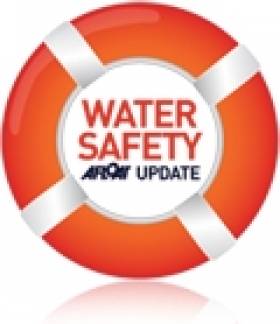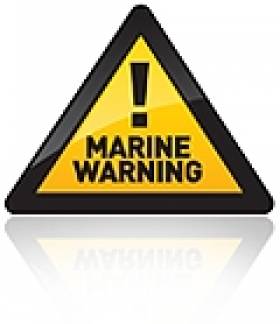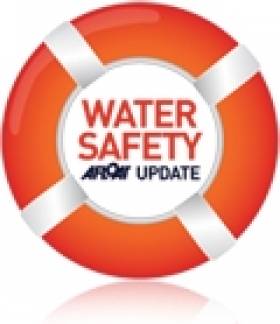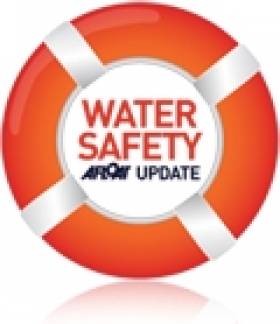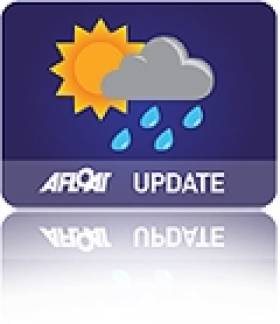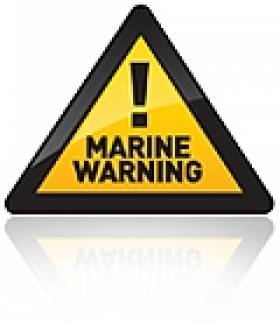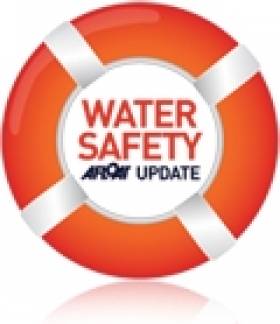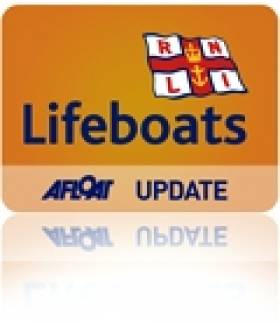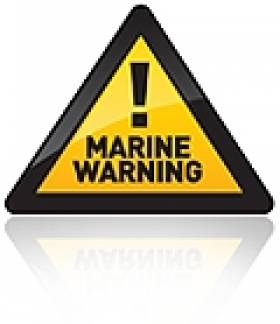Displaying items by tag: drowning
Derry Drowning Brings Heatwave Water Death Toll To Seven
#WaterSafety - Water safety chiefs have yet again underscored the dangers of swimming in unsupervised areas after a teenager drowned in Co Derry yesterday afternoon.
The Irish Times reports that the 15-year-old boy was airlifted to hospital by police helicopter after getting into difficulty when he fell into the River Roe.
The as yet unnamed teen is the seventh drowning victim on the island of Ireland during the current heatwave.
Last week alone saw five drownings of young people, prompting Irish Water Safety CEO John Leech to make a public appeal for awareness of the dangers of swimming in areas without lifeguards, especially in open water.
“One of the reasons we’re losing all these youngish people is because a whole generation haven’t learned to swim in open water,” said Leech, who added that 32 per cent of victims have consumed alcohol.
The Irish Times has more on the story HERE.
Seven Points After Seven Drownings – Irish Water Safety
Are you out of your depth when it comes to staying safe? Irish Water Safety is appealing to the public to take the following seven-point approach to safety when enjoying waterways in this good weather, following an analysis of the spate of recent drownings.
Swim at Lifeguarded waterways -
If there is no Lifeguarded waterway nearby then swim at a recognized, traditional bathing area
Swim within your depth - stay within your depth;
Use local knowledge to determine local hazards and safest areas to swim;
Ensure that ringbuoys are present;
Make sure that the edges are shallow shelving so that you can safely and easily enter and exit the water;
Only drink alcohol after your aquatic activity has ended. Stay Away From The Edge after you consume alcohol.
The majority of drownings, 62%, occur inland where river and lake beds can be difficult to see and therefore extremely difficult to determine if you are swimming within your depth. The onset of cramp, combined with the panicked realisation that you are out of your depth can have tragic consequences and be compounded further by the muscle cooling effect of longer periods in open water.
If you see someone in difficulty, these simple steps may save a life:
Shout to the casualty and encourage them to shore. This may orientate them just enough.
Reach out with a long object such a branch or a piece of clothing but do not enter the water yourself.
Throw a ringbuoy or any floating object and call 112 for the coast guard.
Fifth Drowning This Week Puts Water Safety In Spotlight
#WaterSafety - Water safety chiefs have urged the public to take proper care after the fifth drowning of this week's heatwave.
As The Irish Times reports, the body of a 17-year-old boy was recovered yesterday from a canal in Ardnacrusha, Co Clare where he had been swimming with friends on what was the hottest day so far this week.
It follows the tragic deaths of four other young people ranging from 12 to 21 years of age in various incidents around the country in both coastal and inland waters.
The sad news prompted the Irish Coast Guard to urge the public to "keep water safety in mind" when enjoying outdoor activities at any time this summer.
Irish Coast Guard (IRCG) manager Declan Geoghegan said: “With the warm weather forecast, our thoughts naturally go to enjoying the outdoors and outdoor activities. Whether you enjoy swimming, canoeing, surfing, angling, sail boarding, always remember to wear a personal flotation device.”
PFDs include lifejackets and buoyancy aids, and the IRCG reiterated that it is vital to wear a lifejacket or buoyancy aid if your activity takes you near the water, whether at the sea or on lakes and rivers.
Geoghegan continued: “Each year, the Irish Coast Guard is involved in many search and rescue incidents involving people in our seas, lakes and inland waterways. Wearing a PFD isn’t just common sense, it's basic advice that could save your life.”
Advice from the coastguard to stay safe on the water this summer is to always remember and take heed of the following:
- Never go out alone
- Be able to swim - get the proper training to stay safe
- Never go out on the water having consumed alcohol
- Familiarise yourself with the local areal be aware of your own capabilities and that of your craft
- Check your equipment before you set off and tell someone where you are going and what time you will be back
- Never go out when darkness is approaching
Geoghegan urged anyone planning to join in water-based activities to check out the Safety On The Water website which includes guidelines and advice on most watersport and related activities.
Roscommon Drowning Marks Fourth Tragedy In Two Days
#WaterSafety - RTÉ News reports that a teenager has drowned in Co Roscommon in the fourth such tragic incident during this week's heatwave.
The teen was one of three swimmers who went missing in Annaghmore Lough near Strokestown yesterday evening.
Two of the swimmers managed to reach the shore, but the body of this third was recovered before midnight by a search party led by the Irish Coast Guard's Shannon rescue helicopter and involving local angling boats.
The sad news comes just a day after a 12-year-old boy drowned while swimming in the sea off Youghal beach in Co Cork.
That followed the death of a 21-year-old woman named Lisa Knight who was swimming with friends in the River Feale in Co Limerick late on Tuesday night.
And on Wednesday afternoon a 17-year-old boy drowned after getting into difficulty swimming in a lake in Celbridge, Co Kildare, according to The Irish Times.
Irish Water Safety chief John Leech has appealed to the public on RTÉ Radio 1's Morning Ireland to be aware of the risks associated with the water, especially in unsupervised areas - and particularly for inexperienced swimmers.
Public Urged To Be Aware of Water Risks as Temperatures Soar
#Weather - Irish Water Safety has urged anyone heading to the water on lakes, rivers or beaches during this week's heatwave to take extra precautions as Met Éireann issues a 'yellow warning' amid soaring temperatures.
Speaking to TheJournal.ie, IWS chief John Leach underlined the increased risk of drownings during warmer periods, especially among young people in their teens or early twenties to go swimming in unsupervised areas.
Only today RTÉ News is reporting on the death of a 21-year-old Lisa Knight, who drowned while swimming with friends on the River Feale in Co Limerick in the early hours of this morning.
The heatwave, which is expected to peak on Friday with temperatures in many parts breaking the 30s, has drawn people to coastal areas in droves.
Also on TheJournal.ie, the Irish Coast Guard has reported a 40% increase in call-outs relating to watersport and other leisure activities over the last three weeks compared to the same period in 2012.
A significant number of these relate to rogue jetskiers "tormenting" beach-goers by racing through designated swimming areas on their personal water craft, according to IRCG operations manager Declan Geoghehan.
In related news, the Irish Independent says hoax calls to the coastguard have increased 40-fold since the IRCG was added to the main emergency services accessible by dialling 999 or 112 - and now constitute the "vast majority" of calls received.
Young Man Drowns In Cavan Lake
#Drowning - RTÉ News and The Irish Times are reporting that a man has died after getting into difficulty while swimming with friends at Knocknagarton Lake near Virginia in Co Cavan last night (Monday 24 June).
The as-yet-unnamed 26-year-old was taken to Cavan General Hospital where he was pronounced dead. A post-mortem has been scheduled to be carried out today.
Drownings Double in Last Two Years - Irish Water Safety
Irish Water Safety (IWS) held a Council meeting today and discussed the latest drowning statistics 'AS A MATTER OF URGENCY' for 2012 which will be released shortly.
147 people drowned last year compared to 162 people who were killed on our roads in crashes.
What was most alarming is that 33 people drowned accidentally in 2010 whilst last year 66 people drowned accidentally. These figures are alarming and IWS are pleading with the public to ensure that they always wear a lifejacket when they are on or near water.
Most accidental drownings are preventable so long as people wear lifejackets as our Coast Guard can deploy rescue assets such as lifeboats and helicopters to a casualty, very often in minutes from when they are alerted.
The Council of IWS is concerned that the media and public are not taking heade to our messages and request that they assist us in promulgating the message out to the public as there is an alarming increase in drownings in the last two years.
Whilst drowning figures had reduced greatly from an average of 180 ten years ago to 140 last year this trend is now heading in a very worrying direction. With a long summer ahead and a promise of further good weather, IWS pleads with the public when they are on or near the water to "ALWAYS WEAR A LIFEJACKET" AS "LIFEJACKETS FLOAT - YOU DON'T".
Inflatable Lifejacket Checklist
Ensure your automatic inflatable lifejacket is serviced by an approved agent every year and is in date
Ensure Cartridges have not been punctured and are secured firmly.
Ensure all zips, buckles, fasteners and webbing straps are functioning correctly and adjusted to fit the user.
Check that fitted lights are operating correctly.
Check that the valve or lifejacket is not leaking.
Ensure that you lifejacket is fitted with a crotch strap and is fitted correctly.
Always ensure it is serviceable condition with all zips, ties and velcros operating correctly
#Drowning - Three drownings over the weekend have underlined the importance of safety on the water during the current sunny spell.
In Galway, residents of Moycullen were mourning the loss of a Lithuanian man who drowned while swimming with friends in Ballyquirke Lake on Saturday evening 8 June, according to Galway Bay FM.
And RTÉ News reports of a similar incident in Cork in the early hours of this morning 10 June, in which a 21-year-old man drowned after getting into difficulties in the River Lee near Ballincollig.
The young man is also believed to have been swimming with friends after another hot day across the country, according to The Irish Times.
Elsewhere in Cork, RTÉ News says a 17-year-old has died after drowning in the River Blackwater.
Earlier it was reported that the teen was in a serious condition after getting into difficulties while swimming with friends at a bathing spit known locally as Lisheen Bridge, and had been in the water for some time before he was recovered.
Man Drowns After Rescuing Teens In Courtown Harbour
#RNLI - A man has drowned after attempting to rescue three teenagers who got into difficulty while swimming in Courtown Harbour yesterday 25 May.
The Irish Times reports that the man entered the water after the boys started to struggle in the cold water around lunchtime yesterday.
But despite helping the teens to safety - one of them believed to be his son - the man himself succumbed to the cold.
According to RTÉ News, the Courtown RNLI lifeboat attended the scene within minutes and recovered the 39-year-old from the water, but he was pronounced dead at the scene.
Irish Water Safety Warn of Bank Holiday Drowning Risks
There are 140 drownings in Ireland every year - that's more than five per fortnight. As we approach the May Bank Holiday weekend, water safety should be prioritised by anyone coming close to coastline or inland waterways and when pursuing water-based or waterside activities to avoid the dangers of cold shock, hypothermia and drowning.
There are many reasons people drown yet on Bank Holiday weekends, people often become complacent and put themselves and their families in situations that result in injury or loss of life.
People have a responsibility to themselves and family to stay safe around water by knowing the dangers and learning from the situations that have led to tragic drownings in the past:
Always wear a Lifejacket when on water and ensure that it has a correctly fitted crotch strap.
Shore walkers should stay away from the edge and beach walkers should remain vigilant to the dangers of being stranded.
Ensure that you are fully trained and competent for your aquatic activity.
Be mindful of the safety of family and friends, especially children. Children are naturally curious about water and constant supervision is the safest way to avoid tragedy. Parents of primary school children should check if their local school has yet introduced Irish Water Safety's PAWS programme - Primary Aquatics Water Safety, which teaches children all about staying safe around water. The program is now a component part of the physical education strand of the primary school curriculum and is key to reducing child drowning mortalities and injuries. Now is the time to instill good habits in time for the summer months ahead.
Anglers should be extremely vigilant when fishing from the shoreline of Atlantic swells.
Swimmers should swim parallel and close to the shore.
Alcohol should be avoided before or during any aquatic activity. On average, a third of drowning victims had consumed alcohol therefore it is best left until after your activity to celebrate.
In emergency situations, never hesitate to call 112.


























